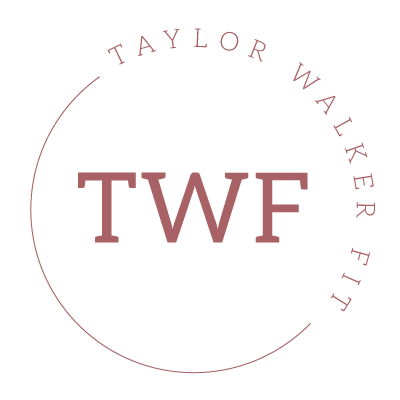
[show_shopthepost_widget id=”3104620″]
Women have been creating life since Eve walked the Earth, yet the food industry has changed so dramatically that the lines of what is nutritionally safe vs. unsafe have been majorly blurred. Throughout my pregnancy, I have talked to my doctor, pregnancy support groups, friends and trusted my gut. When I eat, I make sure to put my babies needs first and foremost, but of course, there are times when I have made mistakes and made personal choices, like not cutting my morning cup of coffee out of my diet. I have decreased my intake, but I still love the ritual of a morning cup of coffee. You may not, and that is A-OK with me. I feel the most important thing is to talk to your doctor. Educate yourself the best you can and do what makes you feel the most comfortable and at peace. If you do have friends or women in your family that are pregnant, try your best not to judge. We are all simply doing the best we can!

I have learned so much throughout this process, and when I came across this article , I needed to share the deets! In today’s post, I am breaking down some pregnancy myths and facts straight from my friends over at Baptist Health South Florida and Mabel Marotta, M.D., an obstetrician and gynecologist affiliated with West Kendall Baptist Hospital. Dr. Marotta says: “The goal of advising patients about proper nutrition while they’re pregnant is to help the mother be as healthy as possible and get the baby off to a good start.” In today’s post, he helps debunk some of the most common myths about pregnancy and nutrition.
Myth: You are eating for two and need extra calories.
Fact: According to this article and the CDC, most women overeat during pregnancy. “Obesity is one of the biggest problems when it comes to pregnancy risks,” Dr. Marotta said. “Being obese at conception puts a woman in the high-risk pregnancy category. The same goes for women who put on too many extra pounds while pregnant. These women are more likely to deliver by c-section. The procedure, while generally safe, comes with risks associated with any type of surgery and is best to avoid if possible.”
This article recommends eating a regular balanced diet full of whole grains, fruits and vegetables, lean protein and healthy fats. And just remember, eating “clean” is one thing, but make sure to steer clear of any unpasteurized dairy or undercooked meats as they can harbor bacteria that pregnant women’s weakened immune system can’t handle. Some “bugs” like Listeria and Toxoplasma can infect the baby and cause serious health problems – with or without symptoms of feeling “sick” – according to the CDC. Babies are also sensitive to toxins that can be in food the mother eats, such as mercury in certain kinds of fish, like shark, swordfish, king mackerel, and golden or white snapper.
“Any food that has the potential to be toxic should be avoided,” Dr. Marotta said. Other foods to avoid can be found here.
Myth: Eating too much sugar causes Gestational Diabetes.
Fact: According to the article, if a woman controls her intake of added sugar and is not predisposed to becoming diabetic, her risk for gestational diabetes is low.
Dr. Marotta says, “Too much sugar in our diets is challenging all of us and is a big problem. During pregnancy, the placenta produces a hormone that’s resistant to insulin and that’s why sugar levels are checked at different stages. If a pregnant woman’s blood sugar levels elevate too much, they can most often be lowered with a fixed, controlled diet.”
Myth: Caffeine amounts can stay the same:
Fact: Caffeine is considered a class “C” medication, which basically means there are risks associated with consuming it during pregnancy, like increased risk of miscarriage during the first trimester.
Dr. Marotta suggests cutting out caffeine as much as possible. Especially those that feel anxious or sleep deprived. Remember, foods like chocolate, ice cream and tea may contain caffeine. Not just your morning cup of java!
Myth: Prenatal vitamins are only for women who have vitamin or mineral deficiencies.
Fact: This article states that “multivitamins specially made for pregnant women provide minerals and supplements that help keep mothers-to-be well and promote healthy fetal development. Most doctors recommend women start taking prenatal vitamins preconception and throughout pregnancy.”
Dr. Marotta says: “I prescribe prenatal vitamins to all of my patients. There are many different brands and types that can have long lists of ingredients. What’s important is to take the ones that provide the right amount of basic minerals to keep the mom healthy and promote healthy brain and physical development in the baby to help decrease the risks of fetal abnormalities.”
The most important nutrients your vitamins need to contain include: folic acid, iron, Omega-3 Fatty Acids, calcium and vitamin D and according to this article, your risk of miscarriage decreases up to 79 percent, just by taking a prenatal vitamin. It can be overwhelming to choose the right prenatal vitamin, but your doctor can recommend one within your budget and nutritional needs.
This article was truly a great resource for debunking some of the most common pregnancy myths. Dr. Marotta says, “Listen to your doctor’s advice. Follow a regular and balanced diet; avoid dangerous or risky foods and control weight gain. These are the basic keys to a nutritious pregnancy.”



